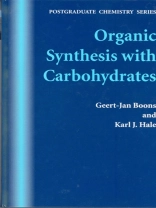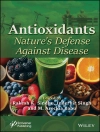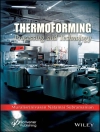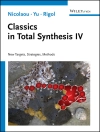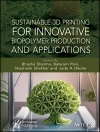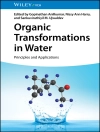Carbohydrates offer a ready source of enantiomerically pure
starting materials. They have been used for the imaginative
synthesis of a wide range of compounds, and have been found to be
effective chiral auxiliaries which enable the introduction of a
range of functionalities in a highly enantioselective manner.
In a subject dominated by volumes at research and professional
level, this book provides a broad understanding of the use of
carbohydrates in organic synthesis, at postgraduate student level.
Emphasis is placed on retrosynthetic analysis, with discussion of
why a particular synthetic route has been chosen, and mechanistic
explanations are provided for key and novel reactions. Wherever
possible, the authors highlight points of general significance to
organic synthesis. Selected experimental conditions and reaction
details are incorporated to ensure that information can be utilised
in research.
The book is extensively referenced and so provides a convenient
point of entry to the primary literature.
Mục lục
Part A: Structure and Synthesis of Saccharides and
Glycoproteins.
1 Mono- and oligosaccharides: structure, configuration and
conformation.
2 Protecting groups.
3 Functionalised saccharides.
4 Oligosaccharide synthesis.
5 The chemistry of O- and N-linked
glycopeptides.
Part B: Natural Product Synthesis from
Monosaccharides.
6 (-)-Echinosporin.
7 (+)Zaragozic acid C.
8 (+)-Neocarzinostatin.
9 (+)-Castanospermine.
10 (-)-Silphiperfolene.
11 (-)-Allosamizoline.
12 (-)-Reiswigin A.
13 (-)-Octalactin A.
14 (-)-ACRL toxin I.
15 (+)-Gasbosine E.
16 (-)-Augustamine and (-)-amabiline.
17 (-)-FK506.
18 (3S, 5S)-5-Hydroxypiperazic acid.
References.
Index.
Giới thiệu về tác giả
GEERT-JAN BOONS, Ph D, is Franklin Professor of Chemistry and Professor in the Complex Carbohydrate Research Center at the University of Georgia. He is on the editorial boards of several journals on carbohydrates, including the European Journal of Chemistry and the Journal of Carbohydrate Chemistry, and is also coeditor of Carbohydrate-Based Immunotherapies and Vaccines.
KARL J. HALE obtained his Ph.D in Synthetic Carbohydrate Chemistry from King’s College London in 1985. He is a professor in the School of Chemistry and Chemical Engineering at Queen’s University in Belfast. Professor Hale has been the recipient of a number of prestigious learned society awards, fellowships, and named lectureships, including the 2012 Royal Society of Chemistry All Ireland Symposium Lectureship.
